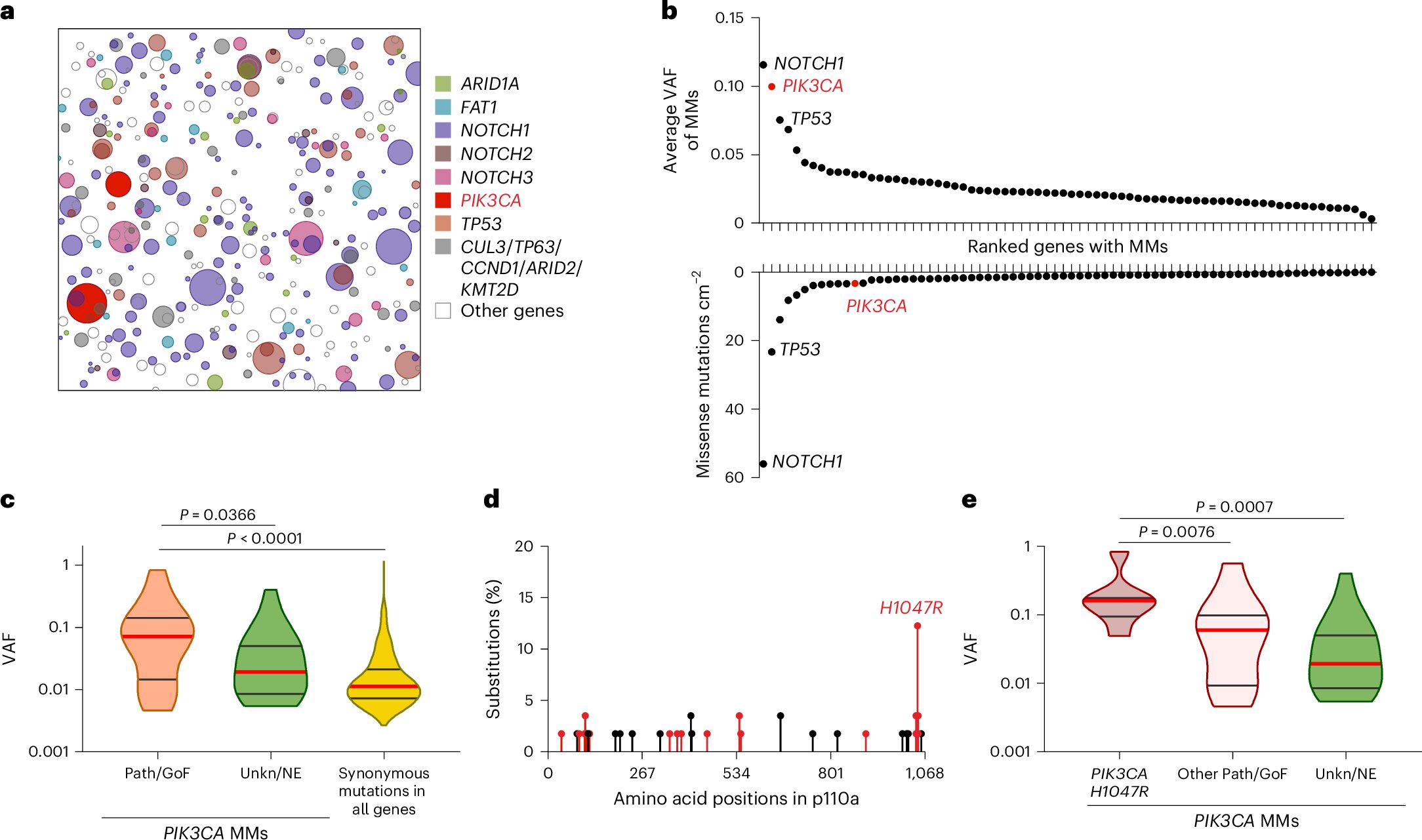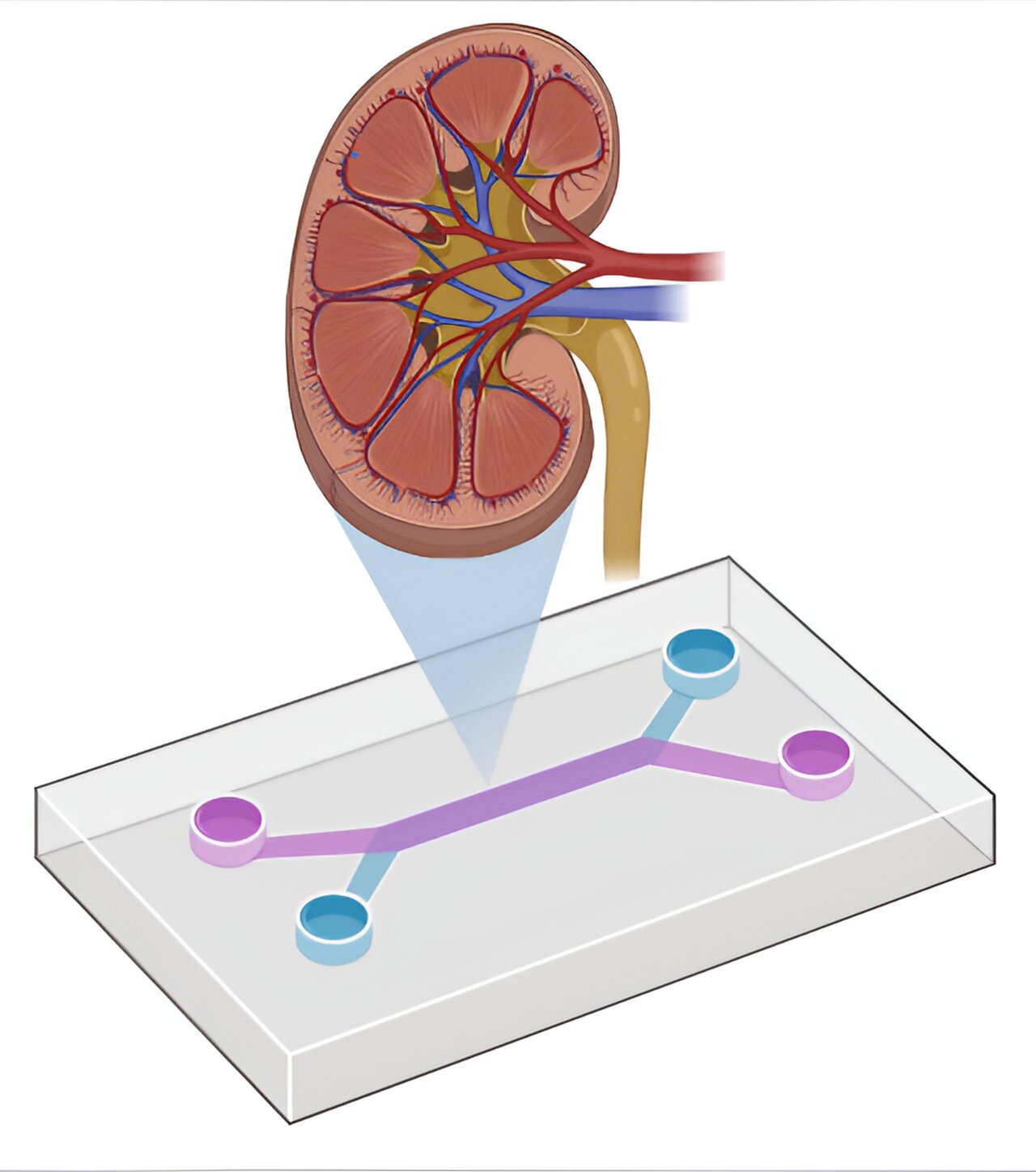
A common diabetes medication, metformin, slows the growth of precancerous cells in the esophagus while some metabolic conditions accelerate it, suggests a new study.
Researchers from the Wellcome Sanger Institute discovered that metformin reduced the growth of potentially cancerous cells both in mice and laboratory experiments. The team also found that metabolic conditions such as diabetes and obesity could enhance the growth advantage of these altered cells in human samples.
The findings, recently published in Nature Genetics, highlight the potential role of metformin and overall metabolic health in managing squamous esophageal cancer risk. Researchers suggest the drug may be beneficial beyond its role in diabetes, though more research is needed.
There are about 9,200 new esophageal cancer cases diagnosed in the U.K. each year, and about one-fifth of these are squamous carcinomas. Patients have a poor survival rate—only about 17% of those in England survive for five years or more. These cancers arise from mutated cells present in the esophagus.
As we age, our body’s cells naturally accumulate genetic changes. While most are harmless, some can give cells a growth advantage and may lead to age-related diseases like cancer over time. A gene called PIK3CA is one known to play a major role in cell growth. When mutations occur in this gene, they cause cells to multiply rapidly, and can lead to cancer of the ovary, breast, lung, brain, and esophagus.
In this new study, researchers from the Wellcome Sanger Institute used experiments in mice, cell cultures and DNA sequencing of human samples to study the evolution of mutations in the esophagus. They focused on a specific mutation in the PIK3CA gene that can drive aggressive cell growth when altered.
The team observed that cells with these PIK3CA mutations grow faster than normal cells. They also found that a high-fat diet and type 1 diabetes in mice enhanced the growth of cells with PIK3CA mutations. When they looked at human esophagus samples, they found that overweight individuals had more cells with PIK3CA mutations compared to those at normal weight, indicating that obesity may increase the risk of esophageal cancer.
Conversely, they discovered that when treated with the antidiabetic drug metformin, the mutant cells lost their growth advantage, both in mice and in lab-grown cells. This effect was seen in mice without diabetes.
Metformin is the most commonly prescribed medication for people with type two diabetes, used to treat high blood sugar. Previous epidemiological studies have suggested metformin may reduce cancer incidence in diabetic populations, but specific mechanisms of action and which populations may benefit have been little understood.
The effect of metformin on the growth of cells carrying PIK3CA mutations opens the door to repurpose this drug to prevent PIK3CA related cancers.
“As we age, our bodies accumulate mutated cells. Learning what factors cause cells carrying these cancer-related mutations to grow long before cancer develops opens the door to new prevention strategies. This highlights how advances in cell biology can lead to unexpected health benefits.
“As we gain more insight into what drives cancer, there are increasing opportunities to repurpose existing drugs, discover new treatments, and explore lifestyle changes that could reduce cancer risk,” says Dr. Albert Herms.
“Our findings show how a common, safe medication like metformin might be used in new ways to prevent cancers related to PIK3CA mutations. This discovery could offer a new tool for cancer prevention, especially in people at higher risk due to metabolic disorders,” says Dr. Phil Jones.
“One of the quickest ways to improve cancer outcomes is finding new purposes for existing drugs. This research gives us an important first glimpse into ways in which metformin could be used to prevent oesophageal cancer, though further clinical trials are needed to understand how it should be administered, and which patients could benefit most.
“This research, and projects like it, are taking us towards an exciting future where cancer is much more preventable,” says Dr. Iain Foulkes.
More information:
Albert Herms et al, Organismal metabolism regulates the expansion of oncogenic PIK3CA mutant clones in normal esophagus, Nature Genetics (2024). DOI: 10.1038/s41588-024-01891-8
Citation:
Common diabetes drug slows growth of normal cells carrying cancer mutation, finds study (2024, September 10)
retrieved 13 September 2024
from https://medicalxpress.com/news/2024-09-common-diabetes-drug-growth-cells.html
This document is subject to copyright. Apart from any fair dealing for the purpose of private study or research, no
part may be reproduced without the written permission. The content is provided for information purposes only.



